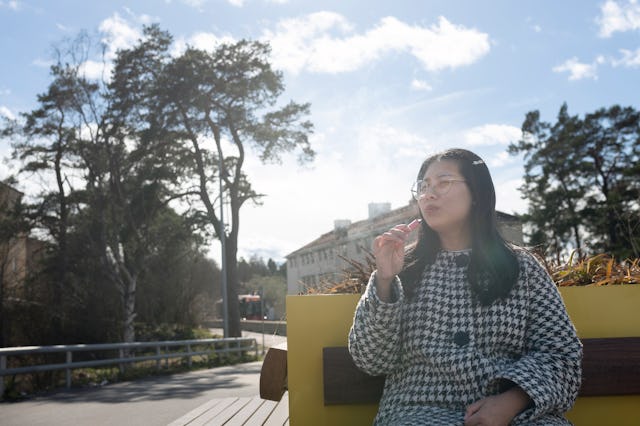National OBGYN Group Shares New Cannabis Recommendations For Pregnancy & Breastfeeding
The new guidelines come at a time when marijuana is being legalized in many states.

The American College of Obstetricians and Gynecologists (ACOG) has offered new guidance to both the general public and doctors when it comes to cannabis use during pregnancy and nursing.
The national organization now urges complete abstinence from the drug both during pregnancy and throughout breastfeeding, including the use of edibles and medical marijuana. The recommendation is based on a number of scientific studies that show negative outcomes from such use.
“Cannabis exposure during pregnancy has been associated with low birth weight, small-for-gestational-age neonates, neonatal intensive care unit admission, and perinatal mortality,” the recommendation reads in part.
In addition, marijuana use can impair judgment and result in an increase of accidents, falls, and injuries.
In addition to these recommendations to parents, the organization urged physicians to ask about cannabis use in all patients before, during, and after pregnancy to minimize risks to the parent and child. These screenings could help doctors educate their patients about a drug that is increasingly normalized in society and that can have benefits outside of use by pregnant people.
Doctors were also urged to ask patients about THC use in a caring, supportive, and non-judgmental way. They can then provide information and find alternative solutions for common pregnancy issues like nausea and pain.
While the dangers of using marijuana to both adults, pregnant people, and nursing babies have been established for some time, these recommendations come at a time when cannabis and THC use have skyrocketed, the legalization of the drug has spread, and the stigma surrounding its use has faded. Specifically, according to a 2019 study of over 450,000 pregnant people in America, cannabis use doubled between 2002 and 2017.
In addition, medical professionals say that there are ongoing misconceptions about the drug because it is naturally found in a plant.
While these new recommendations are just that — simply recommendations — more pregnant people should expect a few questions about cannabis at prenatal appointments and encouragement to read up on why the drug should be avoided.